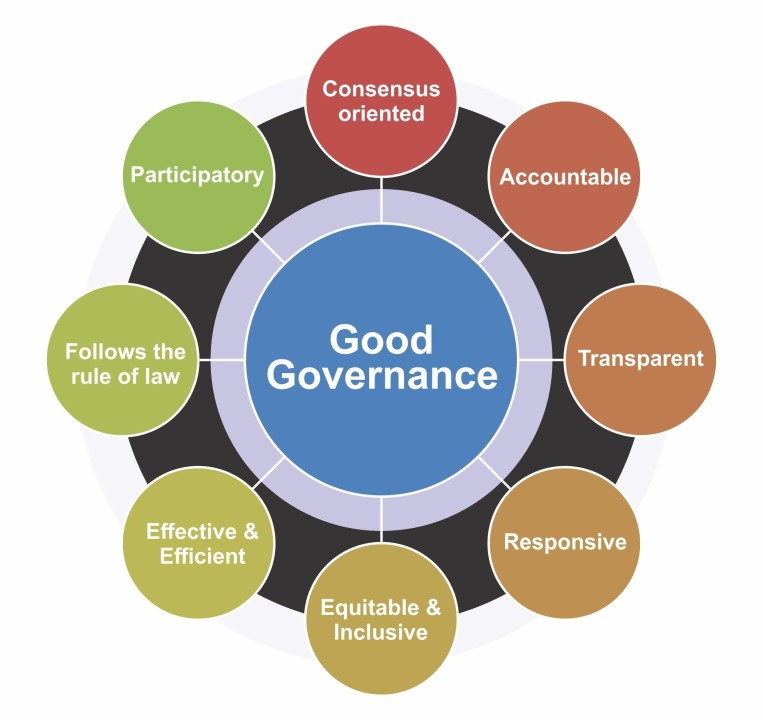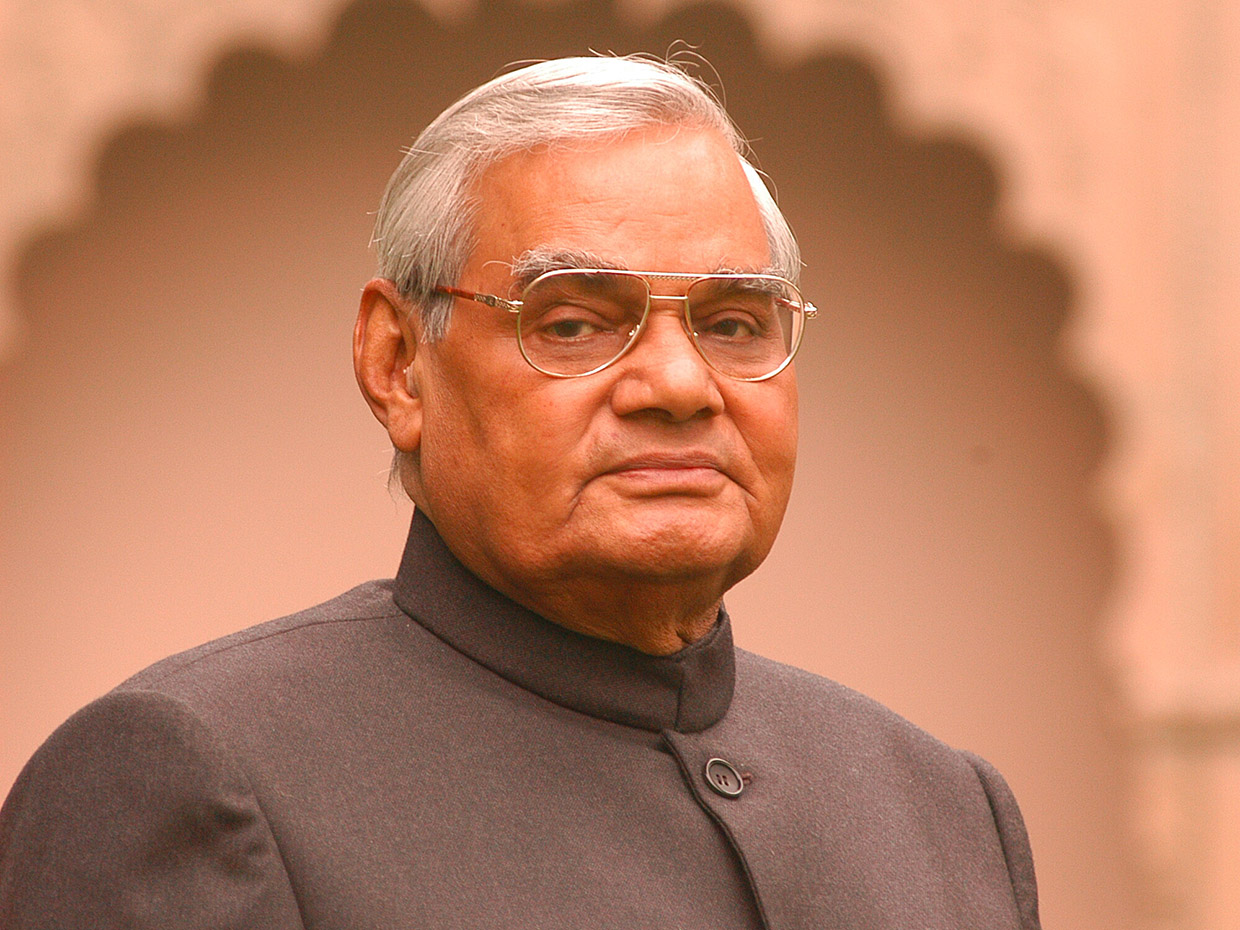Governance
Decoding Good Governance
- 27 Dec 2023
- 9 min read
For Prelims: Atal Bihari Vajpayee and Good Governance Day, World Bank, Corruption Perception Index 2022, Central Public Grievance Redress and Monitoring System, Right to Information Act , 73rd and 74th Constitutional Amendments, Unified Payments Interface, Aspirational Districts Program, Citizen Charters.
For Mains: Major Issues Related to Governance in India, Major Initiatives Related to Good Governance in India.
Why in News?
On 25th December, India commemorated Good Governance Day, coinciding with the birth anniversary of former Prime Minister Atal Bihari Vajpayee.
- This yearly event strives to enhance citizen awareness concerning accountability in governance and governmental procedures.
- Three new features on the iGOT (integrated government online training) Karmayogi platform: My iGOT, blended programmes, and curated programmes, were launched on this occasion.
What is Good Governance?
- About:
- Governance refers to the processes, systems, and structures through which organizations, societies, or groups are directed, controlled, and managed.
- Good governance is defined as a set of values through which a public institution conduct public affairs and manages public resources in a way that respects human rights, the rule of law, and the needs of society.
- The World Bank defines good governance in terms of the traditions and institutions by which authority in a country is exercised. This includes:
- the process by which governments are selected, monitored and replaced
- the capacity of the government to effectively formulate and implement sound policies
- the respect of citizens and the state for the institutions that govern economic and social interactions among them.
- Governance refers to the processes, systems, and structures through which organizations, societies, or groups are directed, controlled, and managed.
- Basic Principles of Good Governance:
What is Worldwide Governance Indicators ?
- The World Bank's Worldwide Governance Indicators project evaluates over 200 countries based on six fundamental measures of governance.
- The six indicators are:
- Voice and Accountability
- Political Stability and Absence of Violence
- Government Effectiveness
- Regulatory Quality
- Rule of Law
- Control of Corruption
What are the Major Issues Related to Governance in India?
- Corruption and Bureaucratic Inefficiency: In Corruption Perception Index 2022, India was ranked 85th out of 180 countries, highlighting concerns about bribery and misuse of public funds.
- Inequality and Social Exclusion: Despite economic growth, the gap between rich and poor persists. A 2022 Oxfam report revealed that the richest 1% in India held more than 40% of the country's wealth, while the bottom 50% had just 3%. This widens disparities in access to healthcare, education, and opportunities.
- Ineffective Implementation of Policies and Schemes: Many well-intentioned government programs suffer from poor execution, leading to limited impact.
- In 2023, the CAG found irregularities in the Ayushman Bharat Scheme. Also another CAG report highlights transfer of widow pensions to males in Jharkhand.
- Inadequate Judicial Infrastructure: India's courts are overburdened with a massive backlog of cases, leading to delays in dispute resolution and access to justice, particularly for the marginalized.
- In 2023, the Supreme Court had a pending docket of over 80,000 cases, raising concerns about timely access to legal recourse.
- Environmental Degradation and Climate Change: India faces major challenges like air pollution, water scarcity, and deforestation. The 2023 World Air Quality Report ranked several Indian cities among the most polluted globally, highlighting the weak enforcement of environmental regulations.
- Political Polarization and Weakening Accountability: Increasing partisanship and a focus on electoral gains sometimes overshadow long-term policy planning and public welfare in India.
What are the Major Initiatives Related to Good Governance in India?
- Transparency and Accountability:
- Right to Information Act (2005): Empowers citizens to access government information, promoting transparency and reducing corruption.
- Central Public Grievance Redress and Monitoring System (CPGRAMS): Online platform for registering and tracking grievances against government departments.
- E-Governance Initiatives: Digitization of government services (e.g., online tax filing, property registration) for increased efficiency and reduced human interaction.
- Citizen Charters: Commitment to service standards and timelines by government agencies, enhancing accountability.
- Citizen Participation and Empowerment:
- MyGov platform: Enables citizens to participate in policy discussions, submit ideas, and provide feedback to the government.
- Gram Sabhas: Village-level meetings for participatory decision-making in rural areas.
- Right to Education Act (2009): Ensures free and compulsory education for children aged 6-14, empowering communities.
- Decentralization and Local Governance:
- 73rd and 74th Constitutional Amendments: Empower Panchayats (village councils) and Municipalities with financial and administrative powers, promoting local democracy.
- Aspirational Districts Program: Focuses on improving socio-economic indicators in 112 geographically disadvantaged districts.
- Smart Cities Mission: Development of 100 cities with infrastructure and technology solutions for better living.
- Other Initiatives:
- Digital India Programme: Aims to transform India into a digitally empowered society with widespread access to technology.
- Direct Benefit Transfers: Transfer of subsidies and benefits directly to beneficiaries through bank accounts, reducing leakages and corruption.
- Aadhaar card: Unique identification system for citizens, promoting financial inclusion and service delivery.
- Insolvency and Bankruptcy Code (2016): Streamlines the process of resolving bad debt and facilitating business revival.
- Unified Payments Interface (UPI): Instant real-time mobile payment system developed by the National Payments Corporation of India (NPCI).
- Enables seamless inter-bank transactions using a single mobile app.
Way Forward
- JanData Platform: Create a secure data platform backed by blockchain technology for personalized services and direct participation of citizens in policy decisions.
- It should include Smart Governance Dashboards, displaying key performance initiatives for various government departments, promoting transparency and accessibility.
- Reforming Bureaucracy: Streamlining administrative processes, reducing red tape, and enhancing professionalism and accountability within the public service is also crucial. VIKAS (Variable and Immersive Karmayogi Advanced Support) will be a crucial step in this direction.
- Fast-track Judicial Reforms: Address the backlog of cases, improve infrastructure and efficiency within the court system, and ensure speedy access to justice for all. E-courts and live streaming of court proceedings is a significant step in this direction.
- AI-powered Grievance Redressal: Developing an AI-driven system that analyzes public complaints, identifies patterns, and automatically directs them to the relevant authorities for swift resolution.
- Reimagining Citizen Engagement: Establish community-based innovation labs across rural and urban areas in supervision of Urban Local Bodies and Panchayats, empowering citizens to create local solutions to local problems in collaboration with government agencies.
- Futuristic Education Curriculum: Integrate skills like critical thinking, digital literacy, and data analysis into the education system, preparing future generations for active participation in a technology-driven governance landscape.
Therefore, India must follow the principle of "Minimum Government, Maximum Governance" aligning with Sustainable Development Goal (SDG) 16: Peace, Justice, and Strong Institutions.
Atal Bihari Vajpayee
- Born on 25th December, 1924, in Gwalior, now part of Madhya Pradesh, Atal Bihari Vajpayee entered politics during the Quit India Movement of 1942.
- Served as Prime Minister in 1996 and 1999, becoming the first since Jawaharlal Nehru to achieve successive mandates.
- Won 9 Lok Sabha and 2 Rajya Sabha elections, earning the title of India’s ‘Best Parliamentarian’ in 1994.
- Received Padma Vibhushan in 1994 and awarded the Bharat Ratna, India's highest civilian honor, in 2015.
UPSC Civil Services Examination Previous Year Question (PYQ)
Q. Effectiveness of the government system at various levels and people’s participation in the governance system are interdependent". Discuss their relationship in the context of India. (2016)
Q. What do you understand by the terms ‘governance’, ‘good governance’ and ‘ethical governance’? (2016)







-min.jpg)